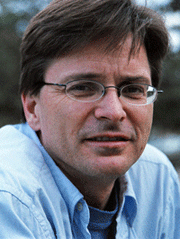My Political Life and Our Moment in History
In my political life as an adult, the two-party system in the United States has offered few attractive choices for the left. I reached voting age in 1976, about the time that the mainstream of the Democratic Party started shifting to the center/right and the mainstream of the Republican Party began moving from the center/right to more reactionary stances on most issues. The New Deal consensus that had defined post-World War II politics broke down, the radical energy of the 1960s dissipated, and left-wing critiques of economic policy were pushed to the margins.
But US society was changed for the better in many ways by that radical activism, most notably on issues of race, sex, and sexualitycivil rights, women's rights, and lesbian/gay rights. Activists also won more breathing room to advocate for radical ideas free from most overt state repression. Many progressive people and ideas found their way into higher education and media institutions, even if the power structures in government and the economy didn't change much. But that didn't stop the ascendancy of neoliberalism, marked by the election of Margaret Thatcher as UK prime minister in 1979 and Ronald Reagan as US president in 1980.
When I became politically active in the 1990s, radical organizing focused on those power structures and hierarchical systems. We saw our work as not only fighting right-wing reactionary policies championed by the Republican Party but also challenging the moderates who controlled the Democratic Party. The epitome of that corporate-friendly politics was the 1996 presidential race, pitting Bill Clinton against Bob Dole, an election in which it was easy to understand why so many on the left claimed there wasn't "a dime's worth of difference" between the two candidates. (We always should be careful, however, given the parties' different positions on rights for people of color, women, and lesbians and gay men, and also because that phrase came in the 1968 presidential campaign of former Alabama Governor George Wallace, hardly a progressive.)
In our organizing, we had no illusions that a radical politics would catch fire immediately, but the patient work of articulating a radical agenda and organizing people outside the electoral system seemed sensible. I continued to vote in every election, but like many on the left I was fond of an Emma Goldman quote (sometimes attributed to Mark Twain): "If voting changed anything, they'd make it illegal."
Today, the assault on representative democracy from the right may leave us with voting that is legal but irrelevant in what is now called an "illiberal democracy." No matter what the limits of our attenuated democratic system, its de facto death at the hands of authoritarianism would be a disaster.
Solidarity against the Right
The political terrain is in some ways unchangedthe dominant forces in the United States remain committed to capitalism and US domination of the global economy. But democratic socialist electoral and organizing successes in the past decade have created new opportunities within the Democratic Party, demonstrated most visibly by the unexpected strength of Bernie Sanders in the presidential primaries in 2016 and 2020, and the election to the US House of Representatives of the "squad" of progressive women of color. Building popular movements together with electoral campaigns has demonstrated that the left can press the moderate leadership of the Democratic Party from the outside and inside.
But in that same period, a new threat has emerged: the erosion of the central norms of liberal democracy from a right-wing populist movement that found a charismatic authoritarian leader in Donald Trump. Whatever the limits of liberal democracy in capitalism, that system provides the foundation from which radical political activity can go forward. This new threat is serious, and unprecedented in my lifetime.
Next Page 1 | 2 | 3 | 4 | 5 | 6 | 7 | 8 | 9 | 10 | 11 | 12 | 13 | 14 | 15
(Note: You can view every article as one long page if you sign up as an Advocate Member, or higher).





